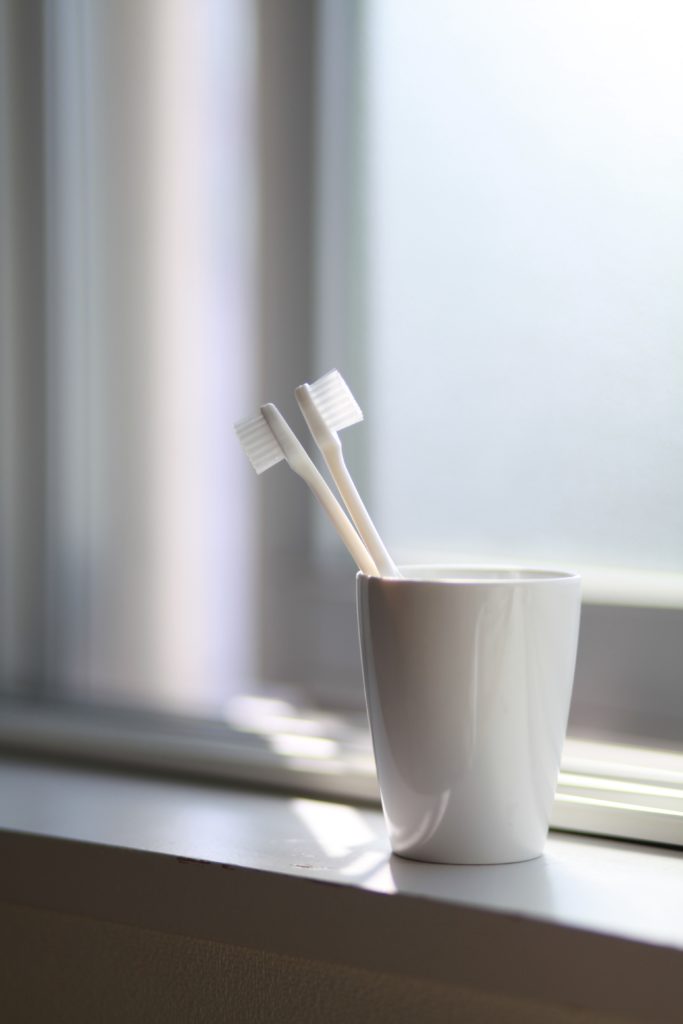Brushing Too Often
Believe it or not, overdoing it can be just as harmful as not brushing enough! Whilst enthusiasm for oral hygiene is admirable, it’s important not to go overboard. Ideally, you should limit your tooth brushing to 2 or 3 times per day. Beyond that, you risk damage to your gums and wearing of the enamel on your teeth. Enamel keeps your teeth strong, protecting them from the wear and tear of biting, chewing and grinding.
So, if you’re a slightly overzealous brusher, feel free to give your teeth a breather!
Ideally, you should limit your tooth brushing to 2 or 3 times per day. Beyond that, you risk damage to your gums and wearing of the enamel on your teeth. Enamel keeps your teeth strong, protecting them from the wear and tear of biting, chewing and grinding.
So, if you’re a slightly overzealous brusher, feel free to give your teeth a breather!
Brushing Too Infrequently
At the opposite end of the spectrum, infrequent brushing causes a lot of problems. The most obvious is bad breath, which can make it unpleasant for people to be around you! There are also serious consequences for your mouth if oral hygiene isn’t prioritized. The acid in the mouth accumulates and contributes to the erosion of your teeth. This causes cavities, which are painful and can lead to infection. Eventually, you may lose teeth as a result of erosion. Inadequate cleaning can also cause gum disease, which often involves bleeding and infection. Receding gums can contribute to further tooth loss. Don’t forget to give your mouth a thorough clean at least twice a day!Brushing Too Hard or Too Soft
Your brushing technique can also cause problems. If you brush too hard, you can experience symptoms similar to that of over-brushing, such as sore and bleeding gums, enamel erosion, and local trauma. If you experience pain after brushing, an over-vigorous approach could be the culprit. Some electric brushes display a red light when you are pressing too hard; take their warning seriously! Alternatively, if you’re too gentle when you brush, you won’t experience the benefits of a thorough clean. This can be due to sensitivity. Should you have recurrent bouts of sensitivity, schedule an appointment with your dentist between your regular check-ups.Using the Wrong Toothbrush for Your Unique Needs
There’s now more choice than ever when it comes to toothbrushes. Soft, firm, different shapes and purposes. With so much to choose from, it can be tricky to select the right one for your needs. For kids, and adults who have sensitive teeth or gums, a soft brush is the best choice. Medium brushes are actually suitable for almost everyone. Use a firm brush only if you feel it would be beneficial to your oral health, after a discussion with your dentist.
For kids, and adults who have sensitive teeth or gums, a soft brush is the best choice. Medium brushes are actually suitable for almost everyone. Use a firm brush only if you feel it would be beneficial to your oral health, after a discussion with your dentist.
Brushing at the Wrong Times
Whilst it’s tempting to head straight to the bathroom to brush your teeth directly after a meal or snack, you could, in fact, be doing more harm than good! Acid present on the teeth after a meal can actually be pushed further into the protective enamel layer. This creates surface damage and can contribute to tooth decay, cavities, and tooth loss. Instead, wait 30 minutes to an hour after a meal to grab your toothbrush.Not Flossing
It’s not the most glamorous of tasks, but flossing is an essential component of your oral hygiene routine. It helps to remove food and debris from between the teeth, which can accumulate and cause plaque build-up. When flossing, ensure that you get into all the crevices between your teeth, including those at the back of your mouth. You can use a roll of floss, or a disposable interdental tool, which has a small section of floss as well a toothpick at the opposite end. It is recommended that you floss at least once per day; bedtime is usually best, as it allows you to finish the day with a nice, clean mouth.Neglecting Other Areas of the Mouth
Cleaning your teeth should be only one part of your oral hygiene routine. Your gums and tongue need to be taken care of, too. Scrubbing your tongue with your toothbrush or a specific scraper might be a bit uncomfortable, but it helps to keep it healthy and clean. Similarly, gentle massage of the gums with a toothbrush removes harmful debris.
You can also use mouthwash to help keep your teeth, tongue, and gums clean, with the added bonus of giving you minty fresh breath!
Scrubbing your tongue with your toothbrush or a specific scraper might be a bit uncomfortable, but it helps to keep it healthy and clean. Similarly, gentle massage of the gums with a toothbrush removes harmful debris.
You can also use mouthwash to help keep your teeth, tongue, and gums clean, with the added bonus of giving you minty fresh breath!


Sorry, comments are closed for this post.